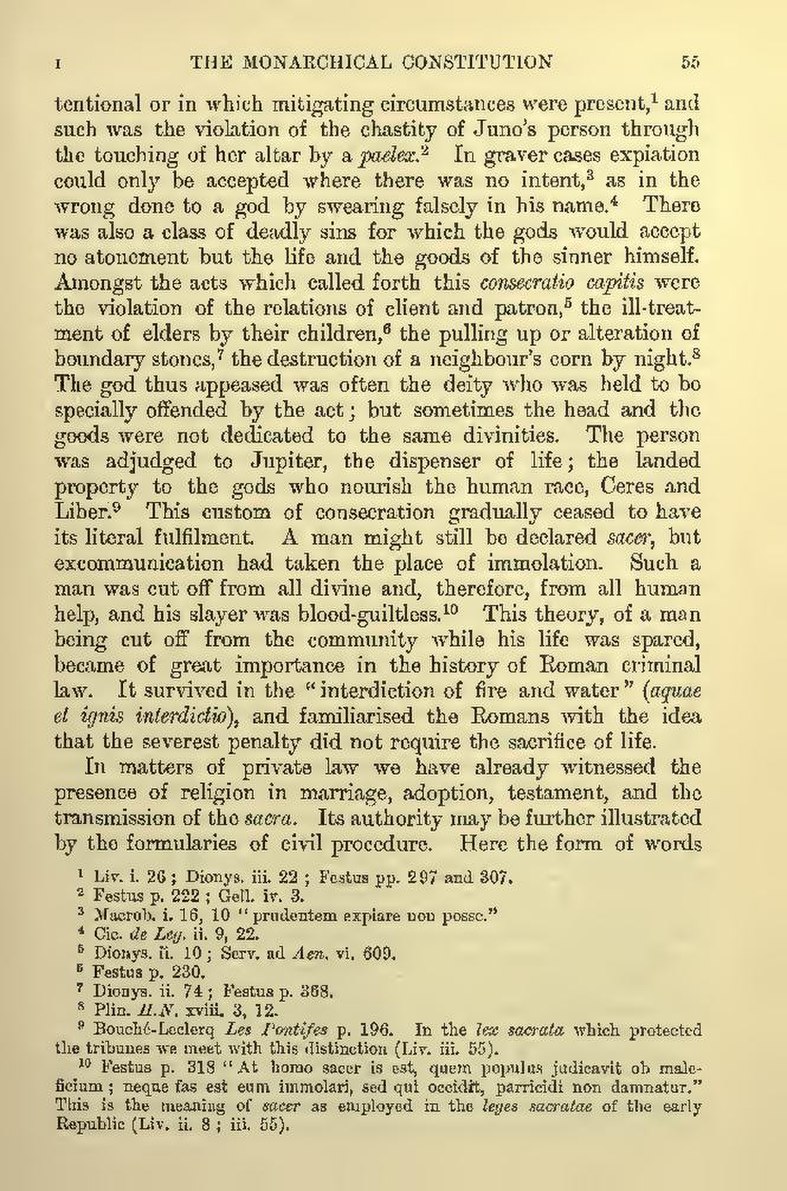- tentional or in which mitigating circumstances were present,[1] and
such was the violation of the chastity of Juno's person through the touching of her altar by a paelex.[2] In graver cases expiation could only be accepted where there was no intent,[3] as in the wrong done to a god by swearing falsely in his name.[4] There was also a class of deadly sins for which the gods would accept no atonement but the life and the goods of the sinner himself. Amongst the acts which called forth this consecratio capitis were the violation of the relations of client and patron,[5] the ill-treatment of elders by their children,[6] the pulling up or alteration of boundary stones,[7] the destruction of a neighbour's corn by night.[8] The god thus appeased was often the deity who was held to be specially offended by the act; but sometimes the head and the goods were not dedicated to the same divinities. The person was adjudged to Jupiter, the dispenser of life; the landed property to the gods who nourish the human race, Ceres and Liber.[9] This custom of consecration gradually ceased to have its literal fulfilment. A man might still be declared sacer, but excommunication had taken the place of immolation. Such a man was cut off from all divine and, therefore, from all human help, and his slayer was blood-guiltless.[10] This theory, of a man being cut off from the community while his life was spared, became of great importance in the history of Roman criminal law. It survived in the "interdiction of fire and water" (aquae et ignis interdictio), and familiarised the Romans with the idea that the severest penalty did not require the sacrifice of life.
In matters of private law we have already witnessed the presence of religion in marriage, adoption, testament, and the transmission of the sacra. Its authority may be further illustrated by the formularies of civil procedure. Here the form of words
- ↑ Liv. i. 26; Dionys. iii. 22; Festus pp. 297 and 307.
- ↑ Festus p. 222; Gell. iv. 3.
- ↑ Macrob. i. 16, 10 "prudentem expiare non posse."
- ↑ Cic. de Leg. ii. 9, 22.
- ↑ Dionys. ii. 10; Serv. ad Aen. vi. 609.
- ↑ Festus p. 230.
- ↑ Dionys. ii. 74; Festus p. 368.
- ↑ Plin. H.N. xviii. 3, 12.
- ↑ Bouché-Leclerq Les Pontifes p. 196. In the lex sacrata which protected the tribunes we meet with this distinction (Liv. iii. 55).
